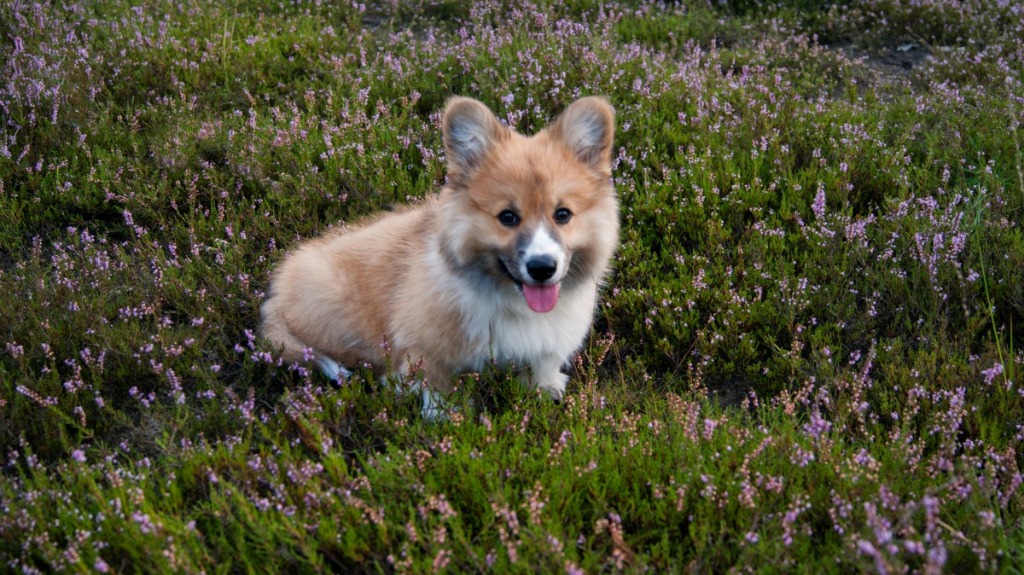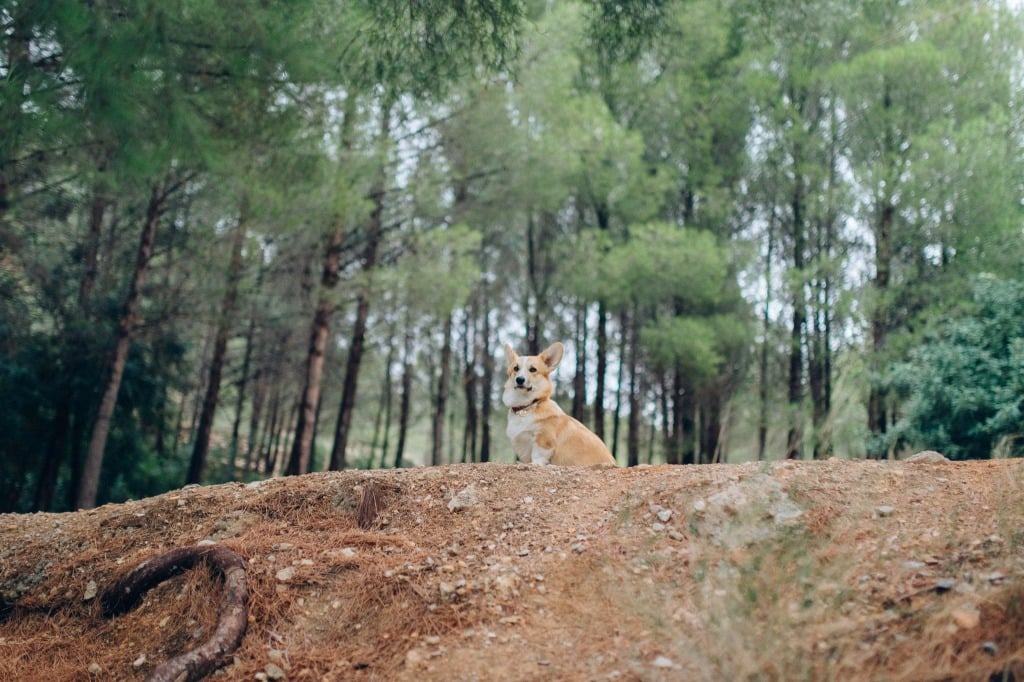Why Do Corgis Bark So Much? Unraveling the Mysteries Behind This Adorable Breed
Have you ever wondered why your sweet Corgi just won't stop yapping?
As an owner, the constant barking can quickly go from cute to frustrating. But what is it about Corgis that make them so vocal? Let's investigate...

Corgis are known for having big personalities packed into their petite frames. This spirited nature is part of what makes them such a popular breed. But with their herding background and protective instincts, barking tends to come as part of the package.
In this post, we'll explore the reasons behind the Corgi barking phenomenon and tips for keeping the noise at bay. Ready to unravel the mysteries behind these vocal furballs? Let's dive in!
Demystifying the Origins of the Corgi Bark
As with most breed-specific behaviors, the Corgi's inclination to bark originates in their early history and purpose. Herding dogs, like Corgis, were bred to vocally control herds of cattle and sheep. Their loud barks helped gather, direct, and protect their flock.
These instinctual behaviors were literally bred into Corgis over generations. So even though your fluffy companion isn't herding livestock down the street, they still feel hardwired to bark for similar reasons.
When Barking Becomes Their Love Language
Corgis thrive on being the center of attention. With their larger than life personalities, they expect interactions on their own watch. Barking becomes their way of demanding your focus.
This desire for your undivided attention can lead to barking when they're:
Craving Playtime
Corgis have a mischievous streak a mile wide. Barking is their signal to you that they're bored and require entertainment, ASAP.
Feeling Neglected
Think of your pup's bark as their way of saying, "Hey, don't forget about me over here!" Corgis left alone for long periods may bark to seek the attention they crave.
Experiencing Separation Anxiety
Corgis form strong bonds with their humans. Being apart from you can provoke anxiety, triggering frequent barking.
When Protective Instincts Kick In
As heritage herding dogs bred to alert farmers, Corgis still have strong protective instincts. Barking is how they sound the alarm to threats they perceive. Common triggers include:
Strangers Approaching
Corgis have exceptional hearing. Guests or passersby will often incite a volley of barks. They're just doing their duty to alert you.
Noises and Activity Outside
Your Corgi's super sonic hearing picks up on sights and sounds that evade human ears. Don't be surprised if they respond to stimuli you're oblivious to.
Trespassing Animals in Their Territory
Corgis consider your home and yard as their domain and will bark ferociously at any critter encroaching on their turf.
Deciphering Different Types of Corgi Barks
Not all barks are equal. Over time, you'll learn to decipher the distinct moods behind your Corgi's vocalizations:
High-Pitched, Rapid Barking
This type of barking conveys urgent excitement. Think: "OMG, someone's at the door!" or "Squirrel outside - DEFCON 1!"
Low-Pitched, Drawn Out Woofs
These are warning barks, letting you know your Corgi is suspicious about something. It's their more serious "intruder alert" bark.
Short, Sharp Barks
These staccato barks are your Corgi announcing their presence. It's their more casual way of saying "I'm here!"
Howling
Your Corgi's howl is their way of seeking connection with you. They may howl when lonely or bored.
Why Excessive Barking is a Problem
While some barking is perfectly normal for Corgis, excessive barking can become problematic. Here's why it's worth the effort to curb:
Neighborhood Disturbances
Frequent prolonged barking episodes quickly become a nuisance for neighbors. Apartment dwellers, take note.
Sign of Boredom or Anxiety
Frequent barking can signal underlying issues like insufficient exercise, loneliness, or stress. Addressing the root cause should be your priority.
Strained Relationships
Excessive barking, especially indoors, can create tension between pets and family members. Maintaining harmony should be the goal.
Health Risks
Over-barking leads to inflammation of the vocal cords. Continual strain can result in nodules or polyps developing.
Actionable Ways to Reduce Excessive Barking
Now for the million dollar question - how do you curb excessive barking and keep your vocal Corgi in check? Try these proven approaches:
Meet Their Needs for Exercise and Affection
Prevent boredom and gain their cooperation by ensuring Corgis get sufficient daily activity and quality time with you. Tired, content pups bark less.
Manage Their Environment
Minimize stimuli that trigger reactions. Muffle external noises, limit views outdoors, confine them to quiet areas of the home during easily excitable times.
Train Them to Stop Barking on Cue
Use treats to reward them for obeying "Quiet!" commands. Your consistency will teach them to refrain from barking when instructed.
Address Causes of Anxiety or Stress
If barking accompanies signs of anxiety, consult an expert for advice on adjusting their environment and care. Medication may be prescribed in extreme cases.
Consult an Expert
For chronic barking issues, seek help from professional trainers. They have experience assessing behavioral causes and customizing treatment plans.
Digging Deeper: Early Socialization is Key for Quieter Corgis
As we've discovered, barking is deeply ingrained in the Corgi breed. But through proper socialization from a young age, it is possible to influence their behavior and temper their tendency to bark excessively.
Socialization during your Corgi's formative months can truly pay dividends when it comes to diminishing undesirable vocal habits down the road. Here's what you need to know:
Start Socialization Early
The most impactful socialization occurs during the critical first 16 weeks of a puppy's life. Positive interactions during this time lay the groundwork for habits and temperament.
Prioritize Socialization with Other Dogs
Frequent socialization with other dogs helps teach appropriate behaviors within the structure of the canine social code. Interacting with their own kind translates well to refined conduct around people.
Introduce Them to New Places
Bring your puppy along on trips to a wide variety of locations - stores, parks, cafes etc. Frequent new experiences while young prevents apprehension and barking later when brought to novel environments.
Let Them Meet New People
Safely introduce your puppy to people of all ages and appearances. This helps prevent perceiving strangers as threats and reacting with fearful barking.
Pair New Experiences with Positive Associations
When introducing anything new to your puppy, pair the experience with something positive - treats, toys, praise. This creates happy associations with novel things.
Set Expectations Early
Gently discourage excessive barking behavior from the very start. Reward quiet conduct when they would normally be inclined to bark. Establishing these boundaries early is most effective.
Enroll in Obedience Classes
Structured training classes continue socializing your Corgi within a controlled setting. Learning commands and appropriate public manners will benefit them immensely.
Maintain Socialization into Adulthood
Don't quit socializing your Corgi once they're grown. Ongoing positive interactions will reinforce good habits developed during puppyhood.
By laying this groundwork through extensive socialization in those vital first months, you can nurture an outgoing yet composed companion less apt to nuisance barking.
Why a Well-Exercised Corgi is a Calmer Corgi
Here's an equation every Corgi owner should commit to memory:
Adequate Daily Exercise = Less Excessive Barking
Corgis were historically herding dogs, which required tremendous stamina and energy. And even today's pampered pups still need vigorous activity to satisfy their high exercise needs.
Without sufficient outlets to expend their energy, Corgis are more likely to bark out of sheer boredom and pent-up energy. Heading off this destructive behavior through activity is essential.
Activity Guidelines for Your Energetic Buddy
So exactly how much exercise does your Corgi need daily? Experts recommend:
- 30 to 60 minutes of activity split into two or more sessions
This can include walking, running, hiking, swimming - any heart-pumping exercise.
- Mental stimulation through training, puzzles, sensory play
Engaging their bright minds is equally important to tire them out.
- Free playtime
Unstructured playtime allows them to release energy at their own pace.
Of course, the exact amount varies by your Corgi's age and physical condition. Monitor your pal to ensure their needs are met.
Ideas for Wiping Out a High-Energy Corgi
Not sure how to sufficiently tire out your spirited Corgi? Try these engaging activities:
- Long walks around new, exciting neighborhoods
- Playing spirited games of fetch at the park
- Taking a dip to swim and splash in lakes or pools
- Chasing (dog safe) rc cars or drones
- Nosework classes to engage their sniffing instincts
- Agility training to learn new physical challenges
Discover which high-intensity activities get your Corgi tuckered out. You'll both be relieved by the subsequent peace and quiet!
Training Techniques That Teach Quiet Confidence
Corgis feed off their environment and take behavioral cues from us. With the proper training techniques, you can shape your impressionable pup into a more relaxed, composed companion.
Curbing the barking doesn’t mean diminishing their natural confidence. It simply establishes you as the calm leader who sets boundaries for appropriate behavior.
Reward-Based Obedience Shapes Lasting Behavior
Modern, reward-based training methods are profoundly effective for influencing a dog’s conduct. The premise is simple - behaviors rewarded get repeated.
With persistence and consistency, you can train your Corgi to default to silence instead of barking unnecessarily. Here are effective strategies:
- Use verbal/hand signals like “Quiet” and treat rewards to positively reinforce silence
- Insert brief quiet moments during play and praise your pup’s composure
- Practice having them remain relaxed when they would normally bark - reward calm responses
- Teach incompatible behaviors like “Go to mat” to redirect their focus away from bark triggers
Showering them with treats and praise for muted reactions reinforces these newly desired behaviors.
Leadership Projects Strength and Security
You set the tone for your Corgi’s sense of security. By cultivating an air of confidence and consistency, your pup will follow your cue to remain cool, calm and quiet.
Ways to establish composed leadership:
- Use an assertive, authoritative tone when issuing commands
- Ignore attention-seeking barking rather than reacting to it
- Stick to daily routines - they find comfort in predictability
- Remain relaxed yourself in situations they find excitable
- Gently correct excessive barking then redirect to a pleasing behavior
Your Corgi detects your emotions. When they sense you are unfazed, they feel they can relax too.
Patience is Required When Rewiring Instincts
Keep realistic expectations on the timeline for improvement. After all, you are rewiring behaviors ingrained over generations.
Most experts recommend committing to a regular training regimen for 2 to 3 months before expecting lasting results. Adhering consistently to new patterns allows them to become habit.
Additionally, not all Corgis respond identically. Your pup may progress rapidly or need more time adjusting to training. Avoid frustration and keep sessions positive.
While Corgis will likely never be silent, a commitment to patient, positive training can help manage excessive barking. With your guidance, your enthusiastic pal can learn to communicate in healthier ways.











